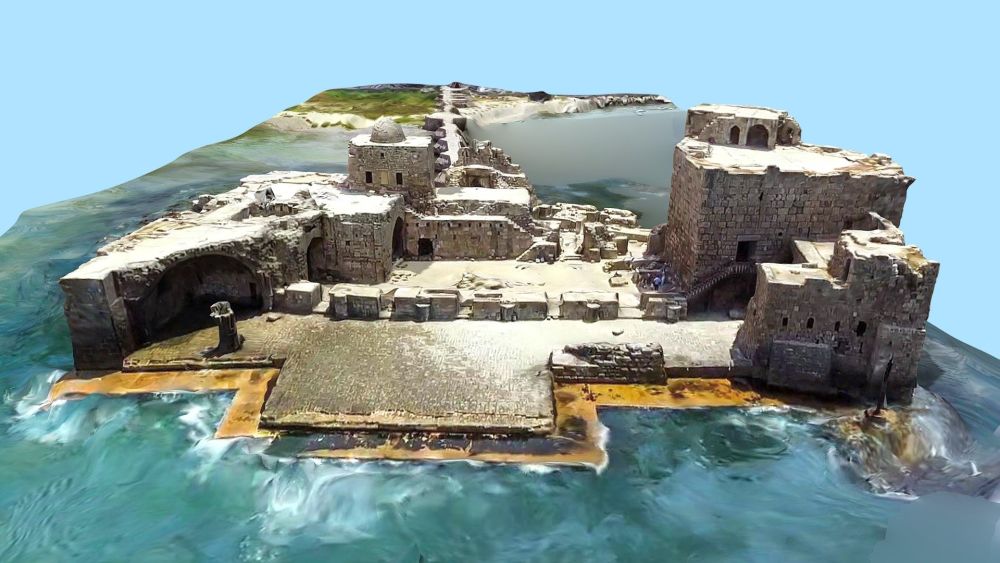

Tourism in Lebanon has a history that dates back to the 19th century when the country was known as a thriving cultural and educational center of the Middle East. It attracted intellectuals, thinkers, and tourists alike. Post-independence in 1943, Beirut was often referred to as “The Paris of the Middle East”, known for its vibrant culture and nightlife, as well as its heritage sites spanning Phoenician, Roman, and Ottoman history among others.
The Lebanese Civil War (1975–1990) had a dire effect on tourism, but the industry has been rebuilding ever since. In the early 2000s, Lebanon saw a resurgence in tourism, and the industry was one of the main drivers of the economy until the country faced a series of setbacks, including political instability, the 2006 Lebanon War, and the financial crisis starting in 2019.
The Sidon Sea Castle stands as a majestic fortress on a small island connected to the mainland by a causeway in Sidon (Saida), one of Lebanon's most ancient and storied cities. It was built by the Crusaders in the 13th century on the site of a former Phoenician temple dedicated to Melkart, the god of the sea.
This historic castle has withstood many battles and changes of rule throughout the centuries. It was partially destroyed by the Mamluks in the late 13th century, later rebuilt, and again damaged during the British bombardment in 1840. It is now one of Lebanon's most prominent archaeological sites and a popular attraction for visitors seeking a glimpse into the past.
Recent trends in Lebanese tourism reflect a growing interest in cultural heritage, eco-tourism, and experiential travel, as modern travelers seek to connect with the local communities and explore off-the-beaten-path destinations. Tourists are increasingly attracted to Lebanon's diverse landscape, which includes beautiful Mediterranean coastlines, rugged mountain terrains, and the vibrant streets of Beirut.
The food scene is also a major draw, with Lebanese cuisine gaining global recognition for its flavors and variety. Despite the country's economic difficulties, Lebanon's historical sites like the Sidon Sea Castle continue to captivate visitors with their everlasting allure.